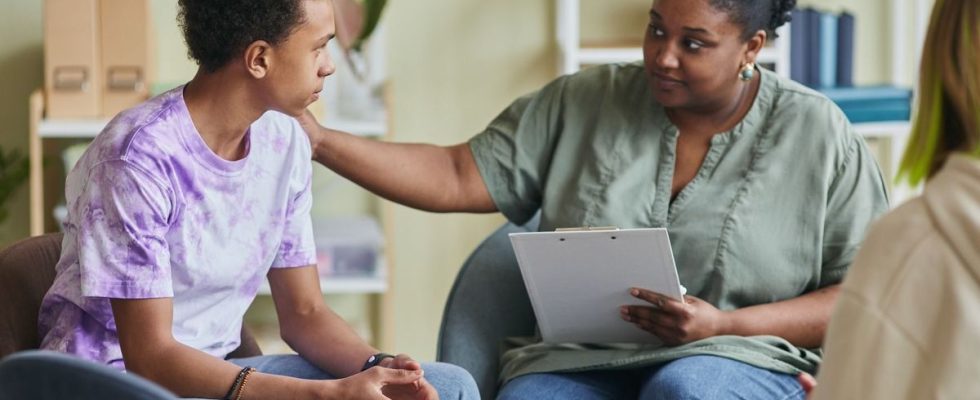Published on
Updated
Reading 3 min.
In 2024, the mental well-being of students is at the heart of the government’s concerns. The Ministry of Higher Education and Research also supports numerous support systems to help young people.
Aware of the deterioration in the mental health of young people over the years, associations continue to warn the authorities about this problem.
The Prime Minister, Gabriel Attal, thus recalled during his general policy declaration of Tuesday January 30, 2024 that “the mental health of young people must be the subject of reinforced care”. He took the opportunity to discuss a series of measures aimed at improving support for students. Between helplines and consultations, the services in question should be put in place or continued by the government, during the year 2024. Here are 5 which plan to improve the well-being of students.
1) The National Student Support Coordination (CNAÉ)
The Cnaé is a listening device offered by the Ministry of Higher Education and Research since December 2023. Its objective? Support and help students to report situations of discomfort, violence or discrimination.
How does it work ? A free and confidential helpline is available Monday to Friday from 10 a.m. to 9 p.m. and Saturday from 10 a.m. to 2 p.m. To access it, dial 0 800 737 800. You can also send an email to: [email protected]
You will then be put in contact with a psychologist or social worker, who will be able to answer your questions and support you, step by step, in your report to your establishment and in the possible criminal procedure that you wish to undertake.
At the end of the exchange with the professional, the student is directed to a system adapted to his situation.
According to data from the Ministry of Higher Education and Research, in January 2024:
- 171 referrals were received by the Cnaé;
- 79% of them were phone calls;
- More women than men called;
- 6 situations were reported, following requests from students.
2) Student Psy Health
The “Student Psy Health” system was set up in March 2021 following the Covid-19 epidemic.
Its goal ? That each higher education student can benefit from 8 consultations with a psychologist per year, free of charge and without advance payment.
The only condition to be entitled to it? The training followed by the student must be recognized by the Ministry of Higher Education and Research.
This ministry announced that the system would still be in place in 2024. The sessions are therefore renewable each year for all students. For any further information, here is list of professional partners of the Student Psy Health system.
3) Student Health Services (SSE)
Since 2023, Student Health Services (SSE) has replaced the University Preventive Medicine and Health Promotion Services (SUMPPS). All students have the possibility of accessing this system, whether they are registered at university or in public or private higher education.
Originally, SSEs provided only primary care, practicing prevention, diagnosis and care. The latest reform of the system also led to the creation of a mental health mission.
Thus, consultations for help and psychological follow-up are offered. During these, the student meets a mental health professional (psychologist, specialized counselor, etc.) and can discuss their concerns, their emotions as well as their personal difficulties.
The advantage? The sessions are distributed regularly to allow continuous monitoring of the student’s mental health. Thanks to this consistency, the effectiveness of consultations can also be evaluated.
4) University psychological assistance offices (BAPU)
In most university towns, a psychological help office is available. Students can consult psychotherapists (psychiatrists and psychologists), social workers and receive advice from administrative services.
The advantage? Consultations are 100% covered by Social Security and mutual insurance companies. Furthermore, students do not have to advance the fees. The number of sessions is not limited, which allows young people to see a professional as soon as they feel the need.
5) The Nightline listening service
For students who need to confide and feel listened to, it is possible to contact the Nightline listening service. This is a free and confidential service, run by students and supported by the Ministry of Higher Education and Research. The Nightline line can be reached every evening between 8:30 p.m. and 2:30 a.m., and also has a chat. The service guarantees an exchange with student volunteers, specially trained in active listening by the association.
